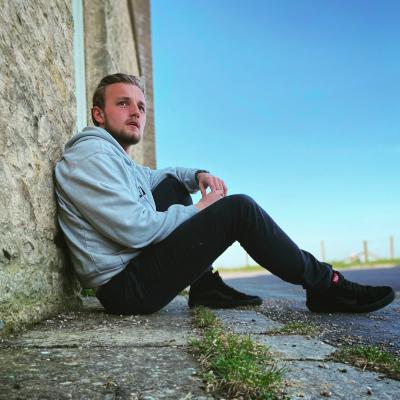My tips for facing long-term psychological effects of cancer
Rian, 21, was diagnosed with acute myeloid leukaemia aged 14. Like lots of people, he found that the effects of cancer don’t always end when treatment ends. Here, he shares the long-term psychological effects he noticed, and tips on how to cope with them.
Cancer doesn’t end when you finish your treatment. There were things that continued to affect me that I wasn’t prepared for. So I wanted to share some of the long-term psychological effects I noticed after treatment ended, and how I faced them.
I’m going to dive straight into the storm with the one thing that a lot of us live in fear of post-cancer, and that is: fear of relapse.
Fear of relapse is normal
The constant fear of what will happen if cancer comes back after treatment can be excruciating at the best of times.
It can suck the life out of your day to day, and really nail you to a standstill whilst shivering in the fear of a possibility you have no control over.
I want you to know your fear of this is okay. It is completely normal. Relapse is a word that is thrown around a lot in treatment which leads to understandable fear of it.
I want you to try and use this fear to know: you cannot change the future, but if the worst case scenario does happen, you want to make the most of today.
Survivor’s guilt is normal too
A common effect I felt after treatment was the wrath of survivor’s guilt. This is the feeling you get when you have survived something that others you may know or love haven’t. For young people with cancer, it might come after someone you meet during treatment sadly dies.
It was never consistent. Yet those times it reared its ugly head at me, I tried to remind myself that I was lucky to be here.
I try to live the life I have today in the name of friends I have lost to the disease. I want to credit them by doing good by them.
I feel this is the best way to deal with the challenge. Live your life for them, as well as you.
Don't feel embarrassed by your cancer
I can remember turning up to job interviews and feeling embarrassed when they asked me about my cancer.
I would try to hide it, entering new workplaces and telling myself I was going to wipe the slate clean of cancer.
I didn’t want it to be in my life anymore, but it was. I treated cancer as if I had been to prison, as if it was a burden swinging over my head.
But actually, most workplaces are fascinated by the strength and resilience that is built within us ex-cancer patients. We hold an experience that is so valuable and so rare. Something people can really learn from.
Employers value these qualities.
Your cancer experience can be empowering
The good thing about mentality is we can change it. Sometimes this is hard, but it is always do-able.
I shut cancer out for a very long time, pretended it never happened. I locked it in a box, as many of us do, and shoved it to the darkest corner I could find in my head.
But this only helped its negative influence grow.
For me, when I confronted the beast of my past, it left me feeling liberated.
Cancer took so much from us, but when we open up, talk and look at it with bravery and hope, we start to see what we can take back from it.
Don’t let your cancer suck the life that you have.
I want to leave you with something to try:
What are three things that cancer took from you? Write these down, tear them up and put them in the bin.
Now, what are three things you are taking back from it? Those three things are your power.
Further support and urgent help
If you’re a young person going through cancer and you feel you’re struggling with your mental health, please do speak to your clinical team, Teenage Cancer Trust Nurse or Youth Support Coordinator. They’ll do whatever they can to help you, which may include referring you to specialist support.
